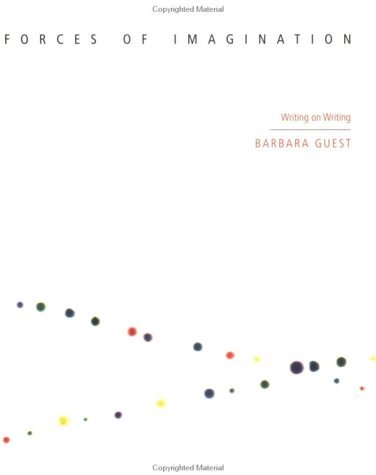A New Bible 4 Me…
“Words contain their own beauty of face, but they desire an occupation. They cannot exist on beauty or necessity alone” (29)
“Words of the poem need dimension. They desire finally— an education in space. The poet needs to understand the auditory and spatial needs of a poem to free it so that the poem can locate its own movement, so that it is freed to find its own voice, it’s own rhythm or accent or power” (30)
“Imagination is clair-obscur. It is also “the absent flower” of Mallarmé. A turbulent presence. And we must acknowledge this “turbulent presence” because it is there to save the poem from a disobedient disregard of its own nature” (32)
“The person with the omnipotence of a cloud hovers over a poem pointing to the direction that it should take” (40)
“Richard Wollheim writes: “the artist is essentially a spectator of his work” (41)
“It is the gathering together of varying instructions by the concealed person that presents us with what we may call a “reliable” landscape” (42).
“You have to keep on the edge of something./ all the time, or the picture dies” —William de Kooning” (44)
“Image is a locus between intuition and concept” (58)
“In exile there is freedom, also. Freedom to maneuver, freedom to adopt a persona. And freedom, in particular, to use a language in whatever context you wish. Language is private. Language speaks your language” (66)
“To arrange its dimensions the poem stretches (looking outwardly and inwardly), thus obtaining a plasticity that the flat, the basic words, what we call “the language of the poem,” demand, and further, depend on… This cannot be achieved through language alone, but arrived from tensions placed on Structure: variability of meter, fleeting moods of expression, mutability of consonants and vowels…Respect your private language” (78).
"[Wallace] Stevens called a poem 'a finikin thing of air.' At its beginning, a poem floats on thin air until it is bolstered in its flight by "a purple bird" that shares the extravagance of being rare. His is a Byzantine way of entering a poem, to call it a piece of air, to let it sing, then to conclude it is rare...In whatever disguise reality becomes visible to the poet, there is the choice of withdrawing from its visibility to create a secret life. The poem is the unburdening of ghosts of the past who have come to haunt the writer exposed to the labyrinth. These are ghosts not words; they are the ephemera that surround and decorate the mind of the poet, a halo rescued from life. And it is the poet's halo that we see arching within the poem, not the full dress of rhyme or structure. Not the artifice of landscape or the surround of language. Shelley liked to think of spirits hid in a cloud, and Byzantine poets imagined genies escpaing from familiar earthenware bottles, and Blake drew angels. Mandelstam heard the inner sound "spilling into his fingers" (85)
"Imagination is the spirit inside the poem, a nostalgia for the infinite, louder than silk" (85)
"The inner sound of the poet protects the poet" (86)
"Vision is conjoined to the poet's spiritual life, of which the poem itself is a resume. The "spirit" or the "vision" of a poem arises from the contents of the poet's unconscious. The poet directs this "spillover" into the poem...The place where vision should glow in a poem may also be occupied by ideas. These ideas, unless proceeding from vision, are the utensils of words. Inorganic, they preempt the shape of vision... Words without vision are deprived of stability...Words contain their own beauty of face, but they desire an occupation. They cannot exist on beauty or necessity alone. They need dimension. They desire finally an elevation in space. The poet of vision understands the auditory and emotional needs of the words and frees them so that the word becomes both an elemental and physical being, and continuous in movement" (88).
"Be slow at first in permitting your passionate beliefs to surface; they will be pummeled on the surface of someone else's thoughts" (90)
"Poetry makes monstrous demands on the poet. The poem, itself, is a battlefield. But what a battlefield! And on this terrain the poet can select several weapons. One of which is nature or the green point, the green eye of vision. The greenery becomes eloquent. Nature is a quick entry into lyricism, because for one thing it is so eloquent. The poem notes the entrance of greenery, a green vision with a voice" (92).
"Allow yourself to find the archaic in a poem, like driving on rockbound surfaces. The needs the archaic to support it/ a piece of the past/" (93)
"What we are setting out to do is to delimit the work of art, so that it appears to have no beginning and no ends, so that is overruns the boundaries of the poem on the page. All of the arts share this need for delimiting... Coleridge said that a poem must be both obscure and clear. This is what we search for in our poem, this beautiful balance between the hidden and the open" (100)
"A poem should tremble a little" (101)
"Baudelaire continually reminds us that the magic of art is inseparable from its risks. And this risk is also a necessary component of poetry as it performs its balancing act between reality and the imaginative force at work within the poem. The poet enters the poem with a hood over the poet's eyes. The poet has arrived from a distance from a real world" (106).

